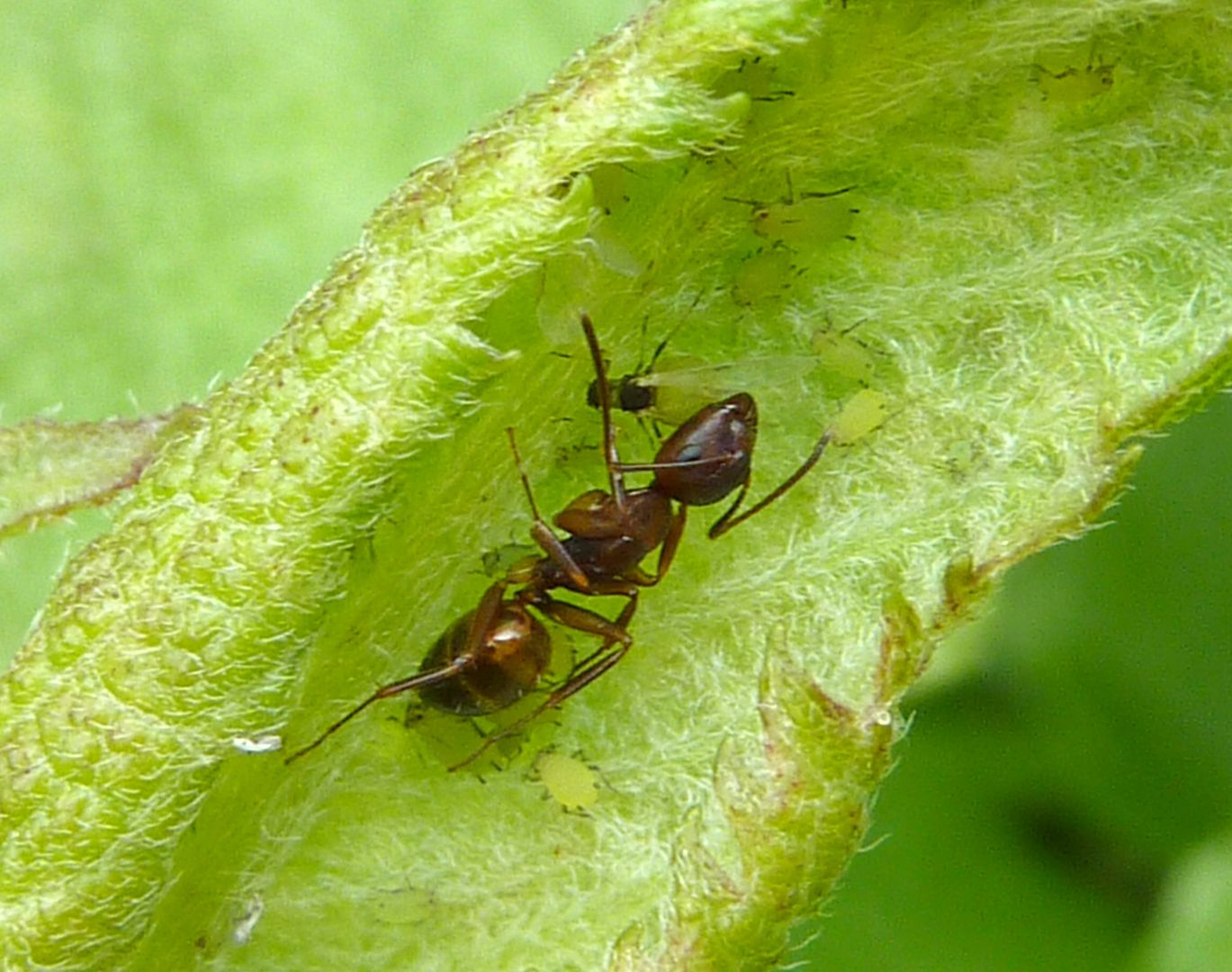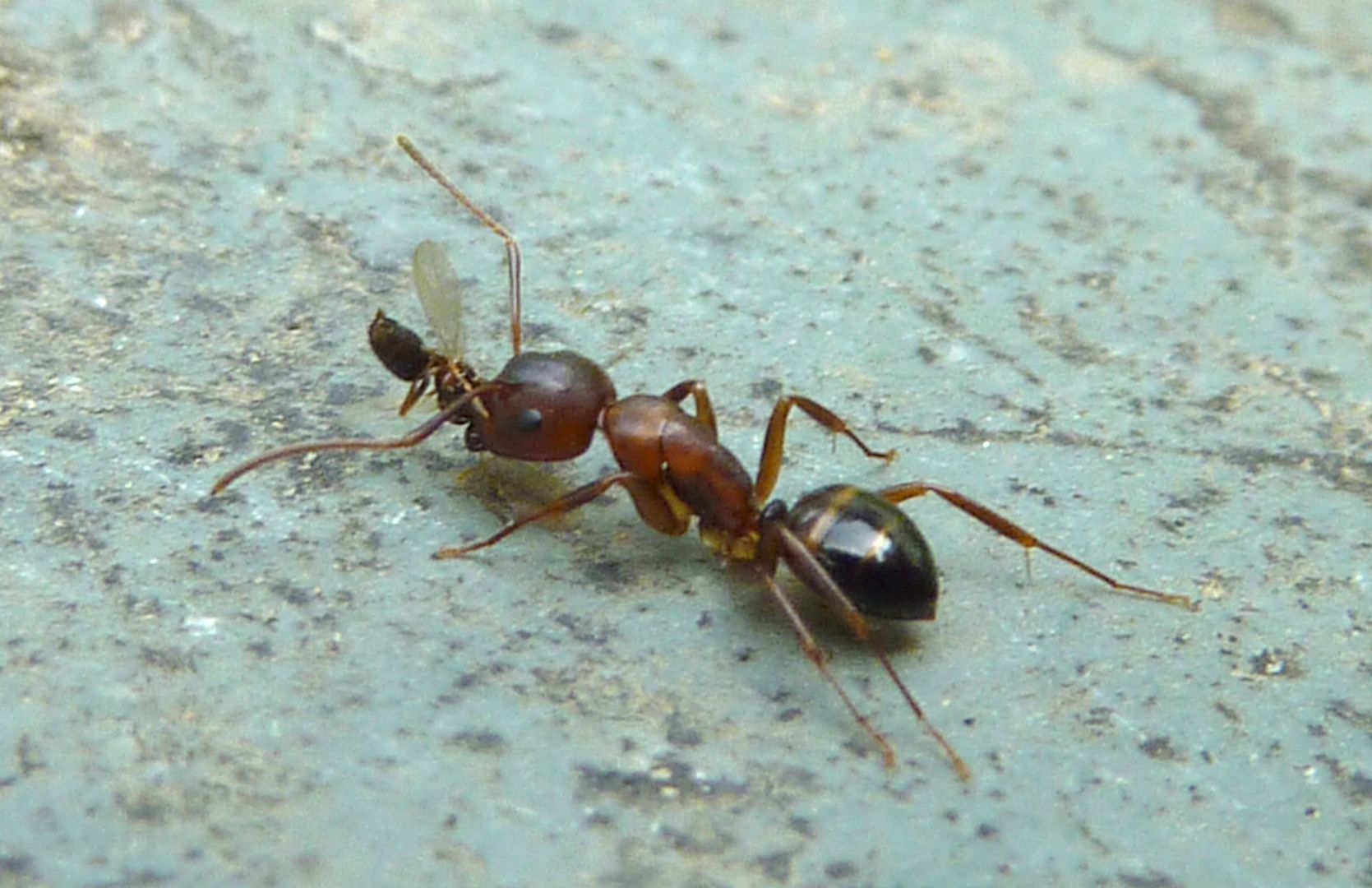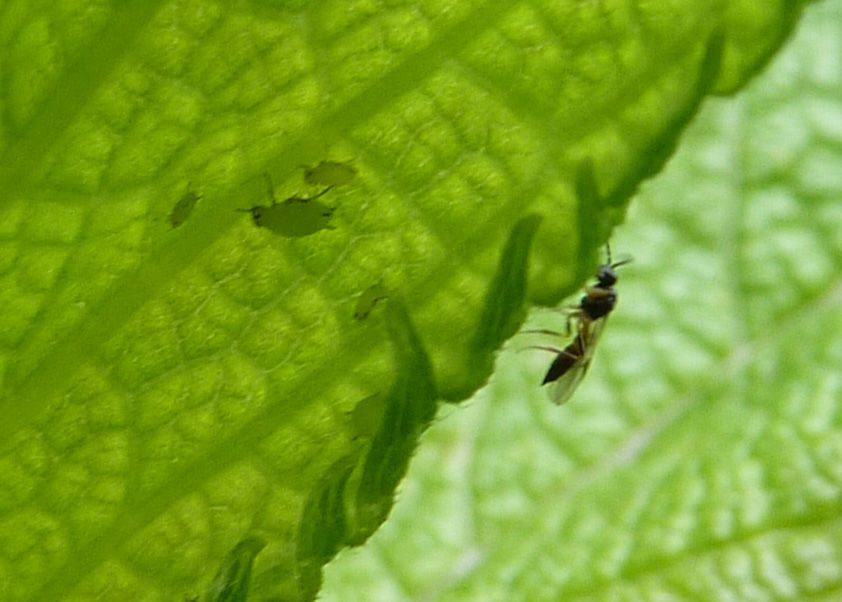 |
| Camponotus subbarbatus tending aphids. |
So ants protect aphids can be good for the plant, but only when the population stays under control. Something to note though is that their success is often dependent on the ants being around them and that doesn't always happen. One of the most common genera to be doing this is that of Formica but these are all diurnal foragers. Come night fall they're pretty much replaced by Camponotus (pictured above) which are more nocturnal. An issue with Camponotus though they rarely nest away from trees and are not often found in open fields. An exception to this might be in the case of a tall grass prairie with lots of dead wood or hollow stem plants about, but even then it would be one of the smaller species, and demands the field wasn't burned that spring. I'm not sure what protects aphids at night in fields.

Also, something I noticed last year was that most aphid species in my yard seemed to finish their life cycle before summer really began. These were replaced by other aphids but found on different plants, red ones on Rudbeckia, orange ones on Milkweed etc... With the absence of aphids that also means the absence of hover fly larva, (pictured above) which feed on the aphids without the ants realizing it.
Parasitic wasps are another threat without ants around. I watched this one inject her eggs into several aphids but never got a good picture of it. Always she targeted the groups that didn't have ants guarding them.
 |
| Camponotus subbarbatus grasping a male Nylanderia flavipes. |
Another threat to the aphids might be to much of a good thing. Ant colonies need to have a balanced diet and store up on foods to get through parts of the year. Colonies are stealing nectar and tending aphids now as it will become rare over the summer. Once the stores are full up they have no farther need of the aphids and may send fewer workers to maintaining herds. The colony diet turns more towards foods rich in protein (insects) and starches (seeds). These foods don't store as long as carbohydrates (nectar and honeydew) but are needed for producing more ants and especially reproductive castes.
Come autumn nectar stores will be low once again. The colony diet will focus more towards sugars and the ants will be clambering for aphids and nectar once again.



